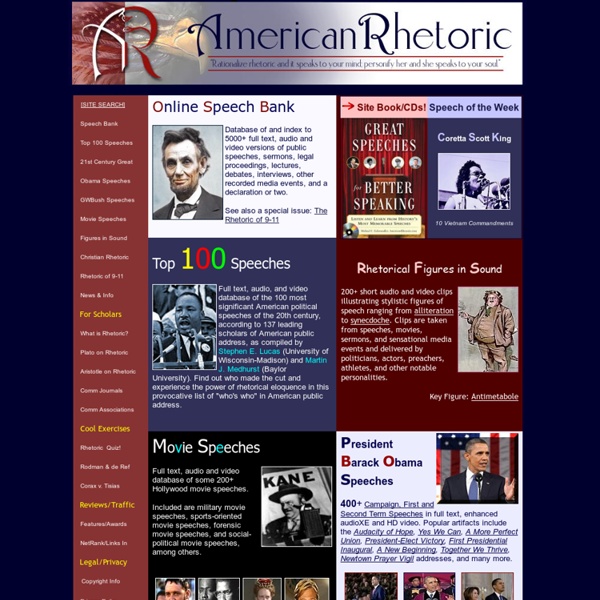



American Journeys: Eyewitness Accounts of Early American Explora 10,000+ Speech Topics Churchill and the Great Republic (A Library of Congress Exhibiti This exhibition examines the life and career of Winston Spencer Churchill and emphasizes his lifelong links with the United States—the nation he called “the great Republic.” The exhibition comes nearly forty years after the death of Winston Churchill and sixty years after the D-Day allied invasion of Nazi-occupied France during World War II. It commemorates both of these events. On April 17, 1945, British Prime Minister Winston S. Churchill addressed the House of Commons on the occasion of President Franklin Roosevelt's death. Photograph above: The Prime Minister's Return Journey Across the Atlantic, August, 1941. This exhibition and its programming were made possible by the generous support of John W. Additional support was provided by the Annenberg Foundation. February 5–July 10, 2004 Northwest Gallery Look for these “Discover!”
Free Audio Books Sort by Titles Per Page 1 - 10 of 11101 Titles by Napoleon Hill Available on:Audio Download Inspired by an idea from Andrew Carnegie, Napoleon Hill devoted 25 years to what became his life's work and is now one of the most influential self development books of all time, Think and Grow Rich. Available on:Audio Download | Online Video This audio book, released by ThoughtAudio.com isolates everything uttered by Christ in the gospel according to Matthew. by Valmiki The Ramayan(a) is an ancient Sanskrit epic. by Martin Luther King, Jr. Available on:Online Audio | Online Video "I have a dream that one day this nation will rise up and live out the true meaning of its creed: "We hold these truths to be self-evident, that all men are created equal." by C.S. The entire Chronicles of Narnia read by Chrissi Hart for her Readings from Under the Grapevine podcast. by Dale Carnegie The Art of Public Speaking by Dale Carnegie and Joseph B. by Mallanaga Vatsyayana by Marcus Aurelius by Benjamin Franklin
Conflict Map Lists of Nobel Prizes and Laureates Conflict Map Start the Conflict Map About the map In the course of the 20th century, mankind experienced some of the most devastating wars of all times. The Nobel Prize Have a look at the list of all Nobel Peace Prize Laureates from 1901 until today! Readings Wars in the 20th Century and Nobel Peace Prize Statistics » Share this: Share on facebook Share on google_plusone_share Share on twitter More Sharing Services18 Share on email To cite this pageMLA style: "Conflict Map". Recommended: The Legacy of Alfred Nobel On 27 November 1895 Alfred Nobel signed his last will in Paris. Play the Blood Typing Game Try to save some patients and learn about human blood types! Unlocking the Secrets of Our Cells Discover the 2012 awarded research on stem cells and cell signalling. Contact E-mail us Press Sitemap A-Z Index Frequently Asked Questions Terms Follow Contact | Press | Sitemap | FAQ | Terms Copyright © Nobel Media AB 2014 Follow us: Follow us: Facebook Google+ Twitter YouTube
Poetry 180 - Home Page Welcome to Poetry 180. Poetry can and should be an important part of our daily lives. Poems can inspire and make us think about what it means to be a member of the human race. By just spending a few minutes reading a poem each day, new worlds can be revealed. Poetry 180 is designed to make it easy for students to hear or read a poem on each of the 180 days of the school year. Listening to poetry can encourage students and other learners to become members of the circle of readers for whom poetry is a vital source of pleasure. Billy Collins Former Poet Laureate of the United States Learn more about Billy Collins More Poet Laureate projects
The Collection ereadingworksheets | Free Reading Worksheets Digital History Poetry Resources - Educator Resources To support the celebration of poetry in your school, below are suggested lesson plans, school-wide poetry events, bibliographies, professional development books for teachers, ideas for encouraging parent involvement and online resources. We hope this helps you to get started on generating ideas for a school wide poetry celebration. Enjoy! Related Links: Poetry...Do I Dare? Poems to Play with (in Class)Sample Unit of Study for Grades 3-5
History of the American West (American Memory, Library of Congre This collection is no longer updated in American Memory. Please visit the up to date presentation: History of the American West (external link) Search by Keyword | Browse the Subject Index | Name Index Over 30,000 photographs, drawn from the holdings of the Western History and Genealogy Department at Denver Public Library, illuminate many aspects of the history of the American West. The mission of the Library of Congress is to make its resources available and useful to Congress and the American people and to sustain and preserve a universal collection of knowledge and creativity for future generations. The Library of Congress presents these documents as part of the record of the past. Special Presentation*The 10th Mountain Division Home Page for the Catalog for the Photography Collection at Denver Public Library* The source materials for this collection are housed at the Denver Public Library. American Memory | Search All Collections | Collection Finder | Teachers
The Influenza Epidemic of 1918 Hard as it is to believe, the answer is true. World War I claimed an estimated 16 million lives. The influenza epidemic that swept the world in 1918 killed an estimated 50 million people. One fifth of the world's population was attacked by this deadly virus. Within months, it had killed more people than any other illness in recorded history. The plague emerged in two phases. The plague did not discriminate. It is an oddity of history that the influenza epidemic of 1918 has been overlooked in the teaching of American history. View the Documents and Photos The National Security Archive